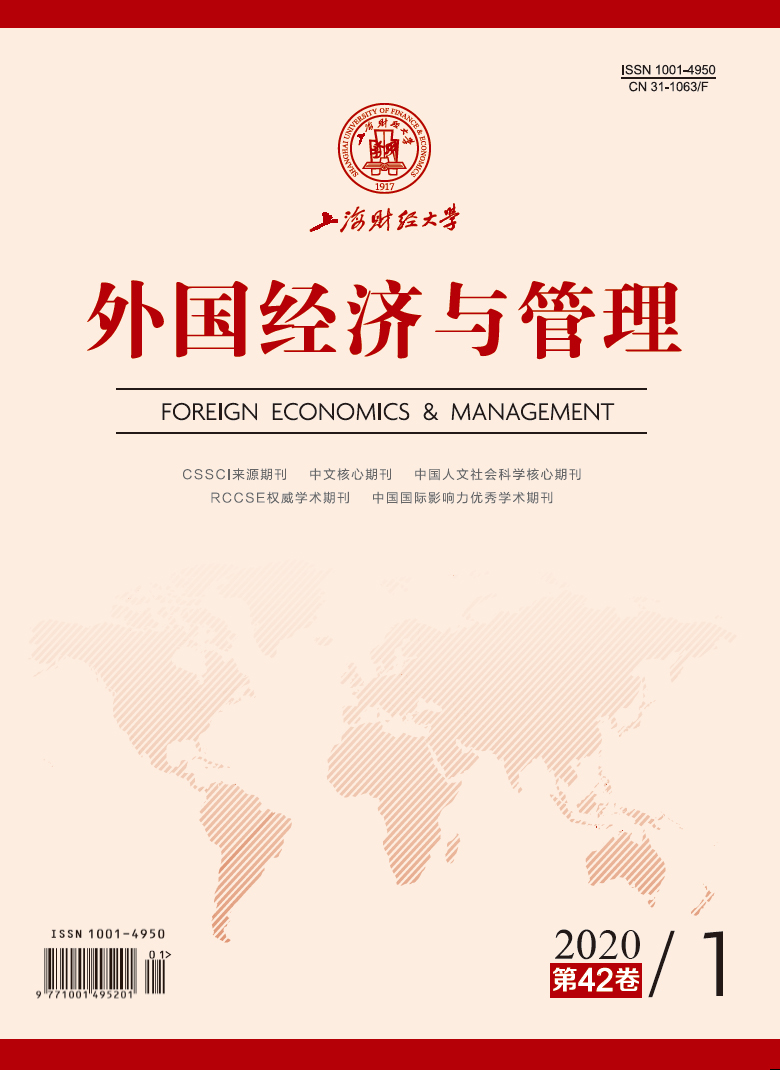本文根据支配补偿理论,考察了上下级主动性人格匹配与员工工作幸福感之间的关系,并探讨了员工对上级信任的中介作用。通过对山东省某IT行业的1 495位上级和6 179名下级进行配对的问卷调查,结合多项式回归与响应面分析,结果表明:(1)上下级的主动性人格越不一致,下级对上级的信任水平越高;(2)当上下级主动性人格一致时,“高—高”组合比“低—低”组合更能促进下级对上级的信任;(3)当上下级主动性人格不一致时,上下级的“低—高”组合比“高—低”组合更能提升下级对上级的信任;(4)上下级主动性人格匹配通过下级对上级的信任影响工作幸福感。该研究不仅丰富了上下级匹配的影响效果,还为团队中上下级之间的有效互动提供了实践指导。
上下级主动性人格匹配对员工工作幸福感的影响及其作用机制
摘要
参考文献
2 陈同扬, 谭亮, 曹国年. 组织支持视角下领导—下属交换关系感知匹配的形成机制研究[J]. 南开管理评论,2013, (3): 118-126. DOI:10.3969/j.issn.1008-3448.2013.03.013
3 刘海洋, 刘圣明, 王辉, 等. 领导与下属权力距离一致性对下属工作绩效的影响及其机制[J]. 南开管理评论,2016, (5): 55-65. DOI:10.3969/j.issn.1008-3448.2016.05.006
6 颜爱民, 胡仁泽, 徐婷. 新生代员工感知的高绩效工作系统与工作幸福感关系研究[J]. 管理学报,2016, (4): 542-550. DOI:10.3969/j.issn.1672-884X.2016.04.009
8 Bakar H A, McCann R M. Matters of demographic similarity and dissimilarity in supervisor-subordinate relationships and workplace attitudes[J]. International Journal of Intercultural Relations,2014, 41: 1-16. DOI:10.1016/j.ijintrel.2014.04.004
11 Bryson A, Forth J, Stokes L. Does employees’ subjective well-being affect workplace performance?[J]. Human Relations,2017, 70(8): 1017-1037. DOI:10.1177/0018726717693073
12 Burke C S, Sims D E, Lazzara E H, et al. Trust in leadership: A multi-level review and integration[J]. The Leadership Quarterly,2007, 18(6): 606-632. DOI:10.1016/j.leaqua.2007.09.006
13 Caesens G, Stinglhamber F, Luypaert G. The impact of work engagement and workaholism on well-being[J]. Career Development International,2014, 19(7): 813-835. DOI:10.1108/CDI-09-2013-0114
14 Crant J M, Bateman T S. Potential job applicant reactions to employee drug testing: The effect of program characteristics and individual differences[J]. Journal of Business and Psychology,1993, 7(3): 279-290. DOI:10.1007/BF01015755
15 Edwards J R, van Harrison R. Job demands and worker health: Three-dimensional reexamination of the relationship between person-environment fit and strain[J]. Journal of Applied Psychology,1993, 78(4): 628-648. DOI:10.1037/0021-9010.78.4.628
17 Glomb T M, Welsh E T. Can opposites attract? Personality heterogeneity in supervisor-subordinate dyads as a predictor of subordinate outcomes[J]. Journal of Applied Psychology,2005, 90(4): 749-757. DOI:10.1037/0021-9010.90.4.749
18 Grant A M, Gino F, Hofmann D A. Reversing the extraverted leadership advantage: The role of employee proactivity[J]. Academy of Management Journal,2011, 54(3): 528-550. DOI:10.5465/amj.2011.61968043
19 Hu J, Judge T A. Leader-team complementarity: Exploring the interactive effects of leader personality traits and team power distance values on team processes and performance[J]. Journal of Applied Psychology,2017, 102(6): 935-955. DOI:10.1037/apl0000203
20 Inceoglu I, Thomas G, Chu C, et al. Leadership behavior and employee well-being: An integrated review and a future research agenda[J]. The Leadership Quarterly,2018, 29(1): 179-202. DOI:10.1016/j.leaqua.2017.12.006
21 Jansen K J, Kristof-Brown A L. Marching to the beat of a different drummer: Examining the impact of pacing congruence[J]. Organizational Behavior and Human Decision Processes,2005, 97(2): 93-105. DOI:10.1016/j.obhdp.2005.03.005
22 Jiang Z. Proactive personality and career adaptability: The role of thriving at work[J]. Journal of Vocational Behavior,2017, 98: 85-97. DOI:10.1016/j.jvb.2016.10.003
23 Judge T A, Heller D, Mount M K. Five-factor model of personality and job satisfaction: A meta-analysis[J]. Journal of Applied Psychology,2002, 87(3): 530-541. DOI:10.1037/0021-9010.87.3.530
24 Kalliath T J, Bluedorn A C, Strube M J. A test of value congruence effects[J]. Journal of Organizational Behavior,1999, 20(7): 1175-1198. DOI:10.1002/(ISSN)1099-1379
26 Lanaj K, Foulk T A, Hollenbeck J R. The benefits of not seeing eye to eye with leadership: Divergence in risk preferences impacts multiteam system behavior and performance[J]. Academy of Management Journal,2018, 61(4): 1554-1582. DOI:10.5465/amj.2015.0946
27 Li N, Liang J, Crant J M. The role of proactive personality in job satisfaction and organizational citizenship behavior: A relational perspective[J]. Journal of Applied Psychology,2010, 95(2): 395-404. DOI:10.1037/a0018079
28 Page K M, Vella-Brodrick D A. The “what”, “why” and “how” of employee well-being: A new model[J]. Social Indicators Research,2009, 90(3): 441-458. DOI:10.1007/s11205-008-9270-3
29 Plomp J, Tims M, Akkermans J, et al. Career competencies and job crafting: How proactive employees influence their well-being[J]. Career Development International,2016, 21(6): 587-602. DOI:10.1108/CDI-08-2016-0145
30 Randolph K L, Dahling J J. Interactive effects of proactive personality and display rules on emotional labor in organizations[J]. Journal of Applied Social Psychology,2013, 43(12): 2350-2359. DOI:10.1111/jasp.2013.43.issue-12
31 Roczniewska M, Retowski S, Higgins E T. How person-organization fit impacts employees’ perceptions of justice and well-being[J]. Frontiers in Psychology,2018, 8: 2318. DOI:10.3389/fpsyg.2017.02318
32 Siu O L, Spector P E, Cooper C L, et al. Work stress, self-efficacy, Chinese work values, and work well-being in Hong Kong and Beijing[J]. International Journal of Stress Management,2005, 12(3): 274-288. DOI:10.1037/1072-5245.12.3.274
33 Van Den Bosch R, Taris T W. The authentic worker’s well-being and performance: The relationship between authenticity at work, well-being, and work outcomes[J]. The Journal of Psychology,2014, 148(6): 659-681. DOI:10.1080/00223980.2013.820684
34 Van Vianen A E M. Person-environment fit: A review of its basic tenets[J]. Annual Review of Organizational Psychology and Organizational Behavior,2018, 5: 75-101. DOI:10.1146/annurev-orgpsych-032117-104702
35 Wang Z X, Zhang J, Thomas C L, et al. Explaining benefits of employee proactive personality: The role of engagement, team proactivity composition and perceived organizational support[J]. Journal of Vocational Behavior,2017, 101: 90-103. DOI:10.1016/j.jvb.2017.04.002
36 Yang K J, Yan X F, Fan J Y, et al. Leader-follower congruence in proactive personality and work engagement: A polynomial regression analysis[J]. Personality and Individual Differences,2017, 105: 43-46. DOI:10.1016/j.paid.2016.09.033
37 Zhang Z, Wang M, Shi J Q. Leader-follower congruence in proactive personality and work outcomes: The mediating role of leader-member exchange[J]. Academy of Management Journal,2012, 55(1): 111-130. DOI:10.5465/amj.2009.0865
38 Zheng X M, Zhu W C, Zhao H X, et al. Employee well‐being in organizations: Theoretical model, scale development, and cross‐cultural validation[J]. Journal of Organizational Behavior,2015, 36(5): 621-644. DOI:10.1002/job.v36.5
引用本文
蔡地, 许瑞冰, 刘佳, 等. 上下级主动性人格匹配对员工工作幸福感的影响及其作用机制[J]. 外国经济与管理, 2020, 42(1): 85-98.
导出参考文献,格式为:





 , 1
, 1 6320
6320  7882
7882

